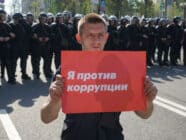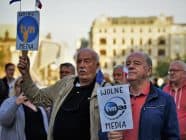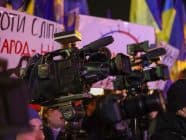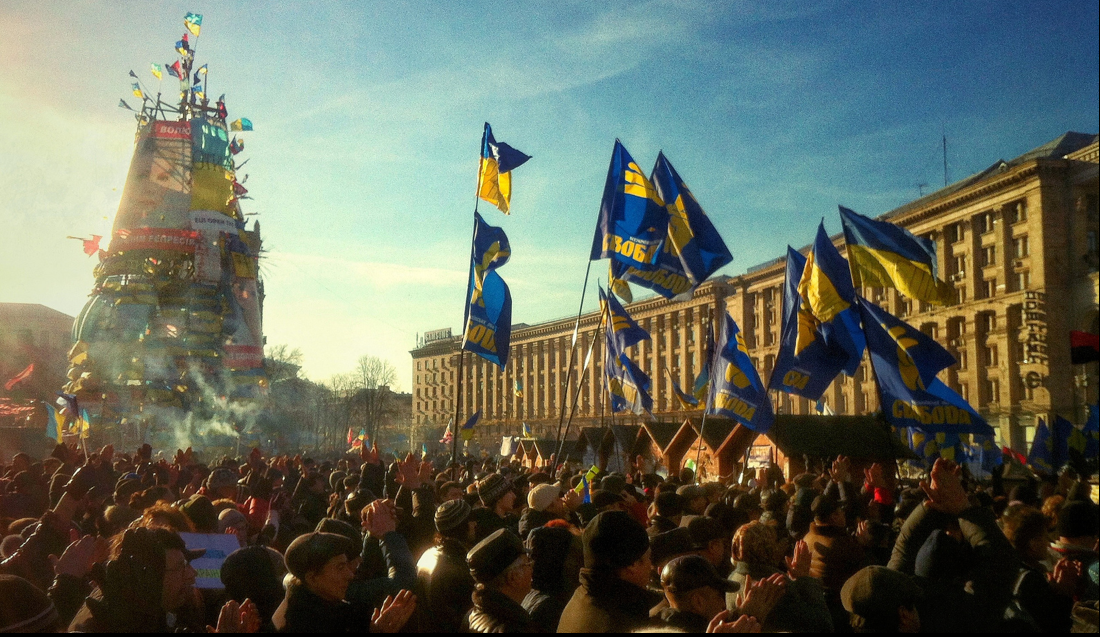The editor of a liberal Russian news website Lenta.ru has been fired in a move that many say is part of a Kremlin-backed crackdown on press freedom.
Galina Timchenko was fired on March 12 after ten years as editor of the site by the site’s parent company, Afisha-Rambler-SUP, which has close ties to Putin’s government. Timchenko worked for the outlet since it was launched in 1999.
Lenta.ru has built a reputation for balanced reporting and has so far managed to stay relatively independent and free of censorship. It has 13 million users monthly. It has been one of the few Russian news sites to have distanced themselves from the official Russian position condemning the Euromaidan protestors in Ukraine.
A few hours before Timchenko was fired, the state media watchdog Roskomnadzor issued a warning to Lenta.ru for publishing an interview with Andrei Tarasenko, one of the leaders of Pravy Sektor (Right Sector), a Ukrainian nationalist group actively involved in Euromaidan.
The interview linked to another article, published by another site, which had an interview with the leader of Right Sector Dmitro Yarosh. That article quoted Yarosh as saying “Sooner or later we’ll be doomed to wage war on the Moscow Empire.” According to Roskomnadzor, the article “contained statements aimed at inciting national hatred” and violated Russia’s law on information, media law, and anti-extremism law. Lenta.ru deleted the link after receiving the warning, but kept the the original interview with Tarasenko on the website.
Timchenko has been replaced by Aleksey Goreslavski who had run the pro-Kremlin internet newspaper Vzglyad. Several reporters at Lentu.ru have resigned in protest at Timchenko’s ousting, and the editorial office released a joint statement to its readers condemning censorship and “direct pressure on the editorial staff”:
The statement said: “In the last couple of years the space of free journalism in Russia has dramatically diminished. Some outlets are directly managed from Kremlin, others through curators, third by the editors who are afraid to lose their job. Some media are closed, others will be closed in the coming months. The trouble isn’t that we’ve got nowhere to work. The trouble is that you, it seems, have nothing to read.”
BBC Russian service says this is not an isolated incident. Authorities appear to use every method possible to attack critical news outlets.
Russia’s leading liberal TV news channel has become embroiled in a bitter fight with the country’s cable operators after posting an ill-judged survey about the Nazi occupation of Russia.
Several cable operators dropped the channel Dozhd (Russian for Rain) after it posted an online survey asking viewers their opinions on the Leningrad siege –when German troops occupied Leningrad for two and half years during World War 2, destroying much of the city and killing thousands of Russians. The survey which asked participants if Russians should have handed Leningrad, now St. Petersburg, over to the Nazis in order to save lives.
The question sparked off a storm online, with several people taking to Twitter and other networks to protest at Dozhd’s decision to pose this question about a painful period in Russia’s history. The TV channel apologized and took down the survey, but that has not been the end of the matter.
Dozhd has been blocked by seven largest cable operators and many media experts now believe the channel is being punished disproportionately severely, possibly with the encouragement of state-backed players. It has now lost around 80 percent of its viewers.
On February 8 Moscow police detained TV Dozhd supporters who gathered to protest at the way the channel was being treated.
Elsewhere, the news agency Rosbalt was shut down at the end of last year for showing two YouTube clips that contained foul language. The Moscow government bought the most popular tabloid newspaper Argumenti i Fakti with the weekly circulation of almost three million copies. The liberal radio station Ekho Moskvy – which was unique in its position of being owned by Gazprom Media and yet being sharply critical of the Kremlin – was also forced to get a new director.
The newspaper Kommersant went through an ‘editorial cleaning’ after publishing criticisms of the 2011 parliamentary elections. Many reporters have left the outlet and a new government-friendly president and editor-in-chief were appointed.
Photo credit: Tom Woodward / Flickr Cc
Tags: Censorship, Dozhd, Galina Timchenko, Kremlin, Lenta.ru, media, Press freedom, Rain, Rosbalt, Roskomnadzor, Russia, Russian Media, TV, TV Rain, Ukraine, Vzglyad












































